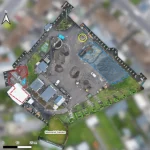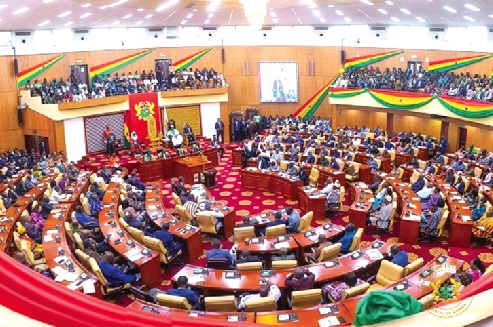The Public Interest and Accountability Committee (PIAC) has sounded a clarion call for government to initiate processes to review the 40 year-old Ghana National Petroleum Corporation (GNPC) to make the company’s operations more effective.
The statutory body with an oversight role over the use of petroleum revenue argued that the 40 year-old GNPC Act, 1993 (PNDCL 64) came into being when the nation was yet to discover and produce petroleum resources such as gas and oil; and as such gave the corporation some discretionary powers to embark on certain activities that are alien to global best practices of national oil companies, hence the need for a review.
For instance, the PIAC in its 2022 annual report found out that GNPC engaged in several quasi-fiscal expenditures (QFEs) such as road construction, building infrastructure projects and funding traditional festivities among others, to the detriment of its core mandate.
As a result, in 2022 GNPC’s expenditure on various line items such as capital projects and administration witnessed a significant increase of over 200 percent.
Since 2014, GNPC has spent over US$124.66million on constructing roads in the western corridor enclave, which is a primary responsibility of the central government and not a national oil company (NOC).
Vice Chairperson of PIAC, Nasir Alfa Mohammed, addressing journalists at a workshop at Keta in the Volta Region mentioned that GNPC is using its subsidiary Jubilee Oil Holding Limited (JOHL) to carry out operations not approved in GNPC’s work plan for the year 2022. However, it uses proceeds from this subsidiary for other expenditures instead of paying into the petroleum holding fund (PHF).
“In 2022, GNPC received an amount of US$38,835,538 as gas commodity revenue from the cash waterfall mechanism (CWM) which constitutes petroleum revenue, but this amount was not paid into the PHF.
“GNPC is also using JOHL to carry out operations not approved in its work plan for 2022. Two notable examples are Explorco cash calls on Springfield, ENI Block four at the value of US$5,546,419, and the Saltpond Offshore Producing Company Limited (SOPCL) decommissioning worth US$11million.
“Total lifting proceeds received by JOHL for 2022 amounted to US$272,652,209. Despite calls by PIAC that revenues of JOHL constitute petroleum revenue and should be paid into the Petroleum Holding Fund, GNPC continues to use lifting proceeds of JOHL for other expenditures,” he said.
On his part, Alhaj Ahmad Suleman – a member of PIAC said: “If you have a law that was established at a time when we had not found oil in commercial quantities and is over 40 years old, obviously it must be reviewed to meet new trends. Since we found oil in commercial quantities about two decades ago, a lot has changed and therefore we need to review the laws that set up the corporation.
“The GNPC’s core mandate, which is the exploration and licencing of petroleum-related activities, can remain – but the structures, operational boundaries, funding streams and management board appointments, among other activities, must be scrutinised to curtail abuse and ensure proper accountability.”
To avoid these discrepancies, the public watchdog over use and management of oil revenue is advocating an amendment to the GNPC Act to align the company’s activities with the Petroleum Revenue Management Act (PRMA).
GNPC financial standalone by 2026 is impossible without a review of the law
It will be recalled that in September 2022, the Co-Chair of the Ghana Extractive Industry Transparency Initiative (GhEITI) Dr. Steve Manteaw expressed worry over GNPC’s readiness to be weaned off government support by 2026 as stipulated by law; stating that the company is not putting in place enough measures to that effect.
According to him, government – as required under the Petroleum Revenue Management Act (PRMA), Act 815 section 7 (3) – is to provide financial support to the corporation for 15 years from the date of promulgating the Act in 2011, which ends in 2026.
However, with just about four years to reach the stated timeline, the corporation has over the years not managed its operations and revenues efficiently to be able make a profit or even pay a dividend to the state.
Dr. Manteaw therefore believes that if stringent measures are not taken to review the GNPC law and diagnose the operations and use of GNPC revenue it uses for financial projects outside its mandate, the 2026 deadline may not be realised.
















